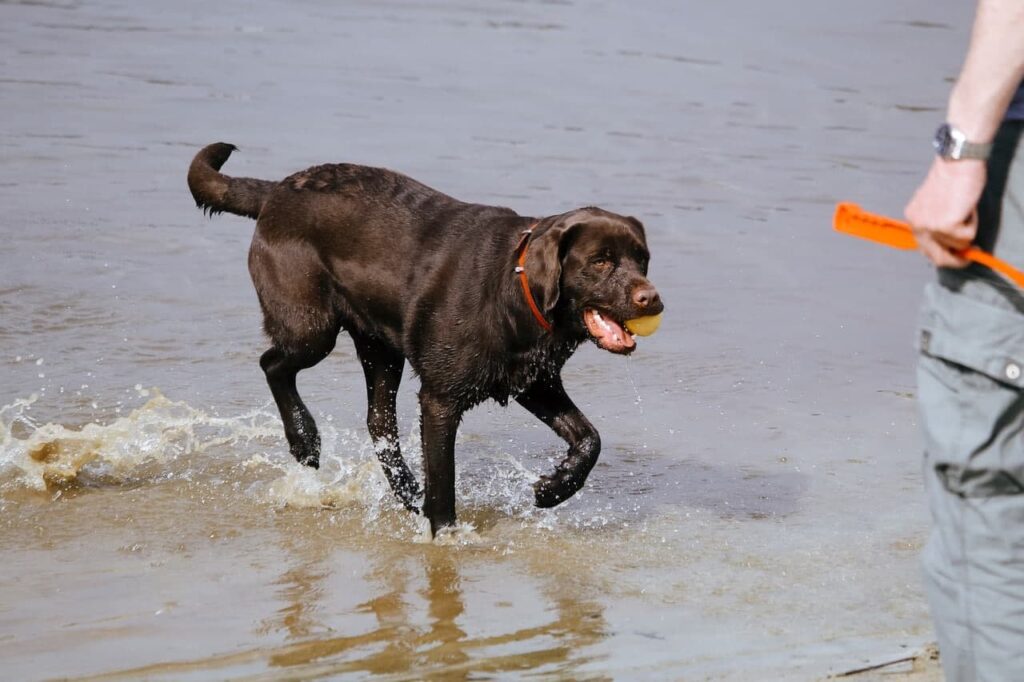If you have never owned a dog before, then it can be a worrying prospect. Caring for another creature is not easy, and dogs can come in all shapes, sizes, and personalities, meaning that it is almost impossible to predict what they will like and what they will not. Recently, Labradors have started to become one of the popular breeds – but are they suitable for a first-time dog owner?
Training
Whether you get a Lab as a puppy or as a grown dog, you still need to put time and effort into training them. Thankfully, Labradors are considered very intelligent and are wonders at being trained since they are so eager to please. This makes it incredibly easy to make them take part in the training, and they will often understand what you want after only a couple of attempts.
Since Labs were originally a working dog, this means that they are both smart and very physical, giving them the strength and stamina necessary to keep this training going even when they are having to exert themselves.
Since they are always happiest when they are pleasing somebody they care about, they will also submit to a mild scolding very easily if they do something wrong. This makes it very easy to prevent future bad behavior without feeling like you are being too harsh towards them.
Social Ability
Labs are generally very friendly and good-natured, working well either in families or for a single owner/master. They are friendly around children – but should still be supervised – and will be very calm around any dog that can provide the same attitude towards them.
Labradors love to play, something you should consider if you are keeping them around other animals. Their low prey drive, coming from their history of retrieving the prey that a hunter would have killed themselves, means that they are not going to randomly attack smaller animals out of the blue.
This also means that they can get along well with cats, especially if they are allowed to grow up with the cat in the same household. It is not uncommon for a Lab to become friends with animals that other dogs are ordinarily biased against, and if they are introduced as a puppy, this bond becomes even stronger.
Feeding
Labradors love eating, which is one of their few major flaws. You need to control their food portions with a very tight fist because they can constantly eat even if they are basically full. Many of them have genetic variants that can make them hungry even when they are not supposed to be, so it is better to give them smaller amounts of higher-quality food.
The food you use should depend on the age they are at and how fast they are growing, so be sure to update the food you are using accordingly. They can be very needy and clingy, which also means that they are often around to try and eat some of your food if you drop any.
Mess
Labradors shed quite a lot and need to be brushed regularly, sometimes as often as three times per week. Their hair is not too long, but they will still shed and can lose a large portion of their coat twice a year (once in spring, once in fall). Having proper de-shedding tools can help a lot when raising a Lab.
However, they generally will not make any other messes as long as you train them properly and keep them away from knocking over anything that could spill or break. On their own, a Lab is not going to make that much mess, other than their own hair shedding.
Keep in mind that Labradors love water and will splash in it as often as they can. This is not messy on its own, but some can get obsessed with jumping in filled baths or trying to spill over larger water containers.
Should I Get A Lab?
Whether a puppy or an adult, a Lab can be a great option for a family household. Make sure to look at a proper page for getting one since it is become easier than ever to end up scammed when you are trying to buy a dog from an existing owner. Wherever your Lab comes from, proper training and a good helping of love will have them fitting into your family almost perfectly.

